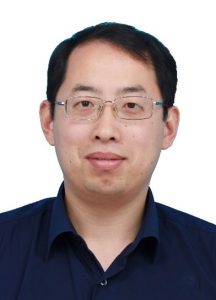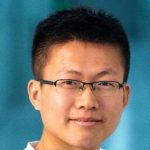Lei Li: The Plant Cell First Author

 Lei Li, first author and co-correspondence author of “Defects in autophagy lead to selective in vivo changes in turnover of cytosolic and organelle proteins in Arabidopsis”
Lei Li, first author and co-correspondence author of “Defects in autophagy lead to selective in vivo changes in turnover of cytosolic and organelle proteins in Arabidopsis”
Current Position: Professor, Frontiers Science Center for Cell Responses, Department of Plant Biology and Ecology, College of Life Sciences, Nankai University, 300071 Tianjin, China
Education: BSs Shandong Normal University, MSc The Central South University, PhD The University of Western Australia
Non-scientific Interests: tennis (amateur level), swimming, fishing and cooking
Brief bio: Over the last decade, my research together with researchers in Professor Harvey Millar’s group (firstly as a PhD student 2009-2012 and then as a Research Associate 2012-2018) has established a new way to look into protein half-lives in plants. Mass spectrometry coupled with metabolic labelling was set up to measure protein turnover and its energy cost in plants (Li et al, MCP, 2012; Li et al, JBC,2012&2013; Li et al, Plant Journal, 2017 and Li et al, Plant Cell, 2017). These studies established the protein turnover measurement in planta and led to the discoveries of protein half-lives ranging from hours to months. Fast turnover proteins attract the community’s attention for their high energy requirement to maintain fast degradation and synthesis beyond their essential roles in plant growth, development and environmental stimuli responses. One group of such fast turnover proteins are photosynthetic proteins involved in high light responses in plants e.g. the classic D1 protein in photosystem II (Li et al, Trends in Plant Sciences, 2018). My recent study discovered more than seventy metabolic enzymes in Arabidopsis whose degradation was driven by metabolic flux stimulated by high light (Li et al., PNAS, 2022). These fast turnover enzymes driven by high light represent new sites showing great potentials in photosynthesis efficiency improvement in the future. Protein turnover analysis gives the community new opportunities to explore the imperfect correlation between mRNA and protein abundance, proteolysis by proteases and autophagy, and mitochondrial & chloroplastic proteostasis in plant growth and development.
I was appointed full professor by Nankai University in 2018. My lab is equipped with the state-of-the-art mass spectrometers and other facilities. We are interested in the investigation of plant mitochondrial and chloroplastic protein homeostasis using cell biology, biochemistry, genetics and proteomics techniques. We aim to explore the respiratory and photosynthetic proteins and establish a foundation for future energy efficient agriculture. Postgraduate student and post-doc positions are available in my group. Please contact [email protected]



